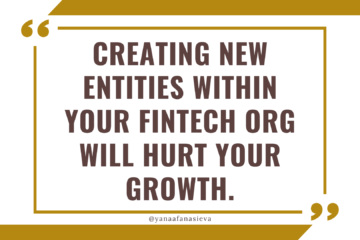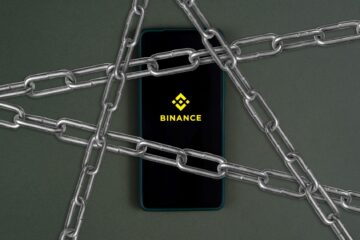How to Interview Compliance Officers
I’d like to share with you some ideas on how to interview compliance officers.
Here is what you can ask:
1. I’ve read your CV (or you have been referred by XXX) and it looks impressive. But what defines you as a person? What drives you? (It’s a different way of asking why do they want this job or assignment). It’s a great ice breaker (if it works) and also it will test the candidate’s ability to quickly connect with others and be themselves at all times. The biggest difference between a corporate environment and a startup from the perspective of personal relationships is that nobody is protected by formality barriers or well-established behavioral patterns.
2. What do you know about our company? What’s our business model and how will it impact the issues that you will have to solve for us? What challenges does it create for you? A simple question that allows you to see whether the candidate has done their homework before the interview. They need to have an idea of how your business model or product offering may impact their job and they would need to be able to articulate it in a concise manner. The biggest frustration startup founders have with the compliance function is when someone says “you cannot do it, it’s too risky”, but they cannot explain why or what the alternative is.
3. What’s the most fascinating thing you have heard or read about the FinTech world recently? Why is it important to you? What does it mean for compliance? – This question checks the candidate’s passion for and interest in the tech world. You would definitely want the person to be inquisitive and able to interpret what current affairs or recent news mean for their role. Role fit & past experiences.
4. About half of the customers who register for my services don’t transact or transact very little. How would you set up an onboarding and verification process to ensure that we spend our compliance resources wisely? – The candidate must be at least conceptually aware of the concept of the progressive onboarding and stages of verification. Ideally, they are familiar with various onboarding and verification tools.
5. Can you tell me about the most complicated project you have ever worked on? What was the context, your contribution to the project, and the end result? – This question checks the capability to summarize and present complex projects briefly while keeping the candidate’s personal contribution as a focal point. Ask the candidate what kinds of alternatives they had and why did they choose option A over option B and how they’ve arrived at their final decision. Ask a lot of probing questions to make sure you understand how they reconcile the regulatory requirements, business objectives, and any potential operational constraints.
6. Can you tell me about a time where you were working on a project that failed or did not receive regulatory approval? What was the context, what happened, and what did you take away from this experience? – OR – Can you tell me about a time where you’ve found a creative or original way around an obstacle? What was the problem and how did you come to the solution? – This question checks for the candidate’s reaction and learning capability in the face of failure. You would want to find a candidate who was willing to take some risk and explore new ideas because it is a good indication that they would not be too constrained or saying “no” before giving it a decent try time. A classical, must-have, “think outside the box” question.
7. Can you tell me about the time where you have successfully defended customer interests during a project? – As a small or medium-sized company, your customers mean everything to you, and your candidates should understand that.
8. How would you recommend setting up transaction monitoring rules, fraud management tools, and anti-manipulation rules, and how does it fit together with AML requirements? – In the FinTech world, you operate in an environment where you never see your customers and you use technology to manage your AML, fraud, and many other risks. Your compliance expert must have some basic understanding of how you can use and compare geo-location and device information, card billing addresses, phone prefixes, dynamic risk profiling, velocity tracking, detection of linked accounts, and similar data points to derive and interpret information about customer behavior. If the candidate suggests that the only answer is to block an account and call the customer to clarify the situation, this is probably not your dream hire.
9. Can you tell me about a time where your manager has given you a task that you did not know how to complete? What was the task and how did you go about it? – This question checks for autonomous working capability and for the courage of asking someone for help in the face of difficulty. Two in one!
10. What will our company learn from you and what do you think you will learn from us? There is a good chance that any employee might leave the company at some point – so you should see how your company and the candidate can make the most out of this professional experience.
If you are interested to take another step toward better and sustainable compliance, grab these free sample questions for both sides of the table to help you make your FinTech interviews well structured and disciplined, more productive, and more insightful!


